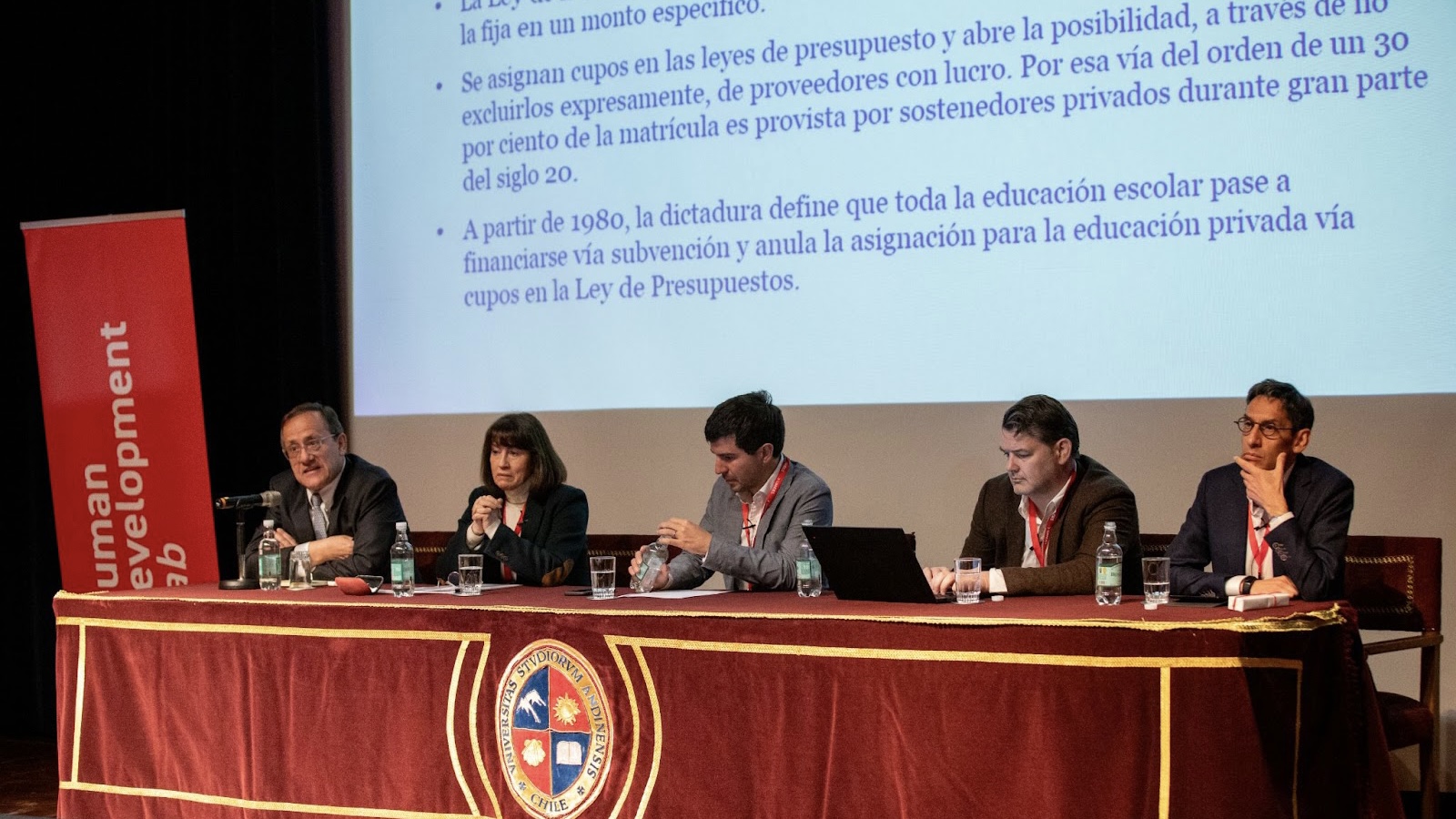
Four local and international experts discussed the challenges and opportunities of competition within the education system, exploring its impact on quality and access to education.
The Human Development Lab (HDL) at Universidad de los Andes successfully organized the public policy panel titled “Competition in Education: Challenges and Opportunities,” which brought together over 400 participants, including academics, students, researchers, and education professionals. Held at our institution, the event focused on analyzing the effects of competition in the education system, highlighting both the challenges and opportunities in terms of educational quality and access.
José Antonio Guzmán, President of Universidad de los Andes, emphasized the importance of initiatives like this to foster dialogue and reflection on educational policies. “The Human Development Lab is a highly valued project at our university. The entire team has dedicated considerable time and effort to deeply think about educational policies and how they can improve the education system in Chile,” stated Guzmán.
The panel was moderated by Andrés Barrios, Director of the Human Development Lab, and featured international experts who shared their insights on the effects of competition among educational institutions. Harald Beyer, former Minister of Education and Professor at the School of Government at Universidad Católica, presented a historical analysis of the private sector’s role in the dynamics of the Chilean education system.
Alejandra Mizala, Pro-Rector of Universidad de Chile, addressed the risks associated with solely relying on the market to ensure equity in access to education. Mizala emphasized the importance of regulating certain aspects of the education system.
Christopher Neilson, Professor of Economics and Global Affairs at Yale University, presented evidence on how competition incentives introduced by the SEP Reform in Chile have impacted public sector educational quality. Neilson also explored the potential of new technologies to reduce informational frictions and transaction costs related to school choice, which could increase access to quality education for more students. Finally, Miguel Urquiola, Dean of Social Sciences at Columbia University, provided an overview of the literature on competition in educational systems at various levels. He discussed examples where competition has worked well—such as research universities in the U.S.—as well as challenges it has created, such as inequality and segregation in the K-12 education system.
The panel provided a platform for the exchange of ideas and the analysis of the best ways to incorporate competition into the education system without exacerbating inequalities. Over 400 attendees had the opportunity to explore new avenues to improve education in Chile.